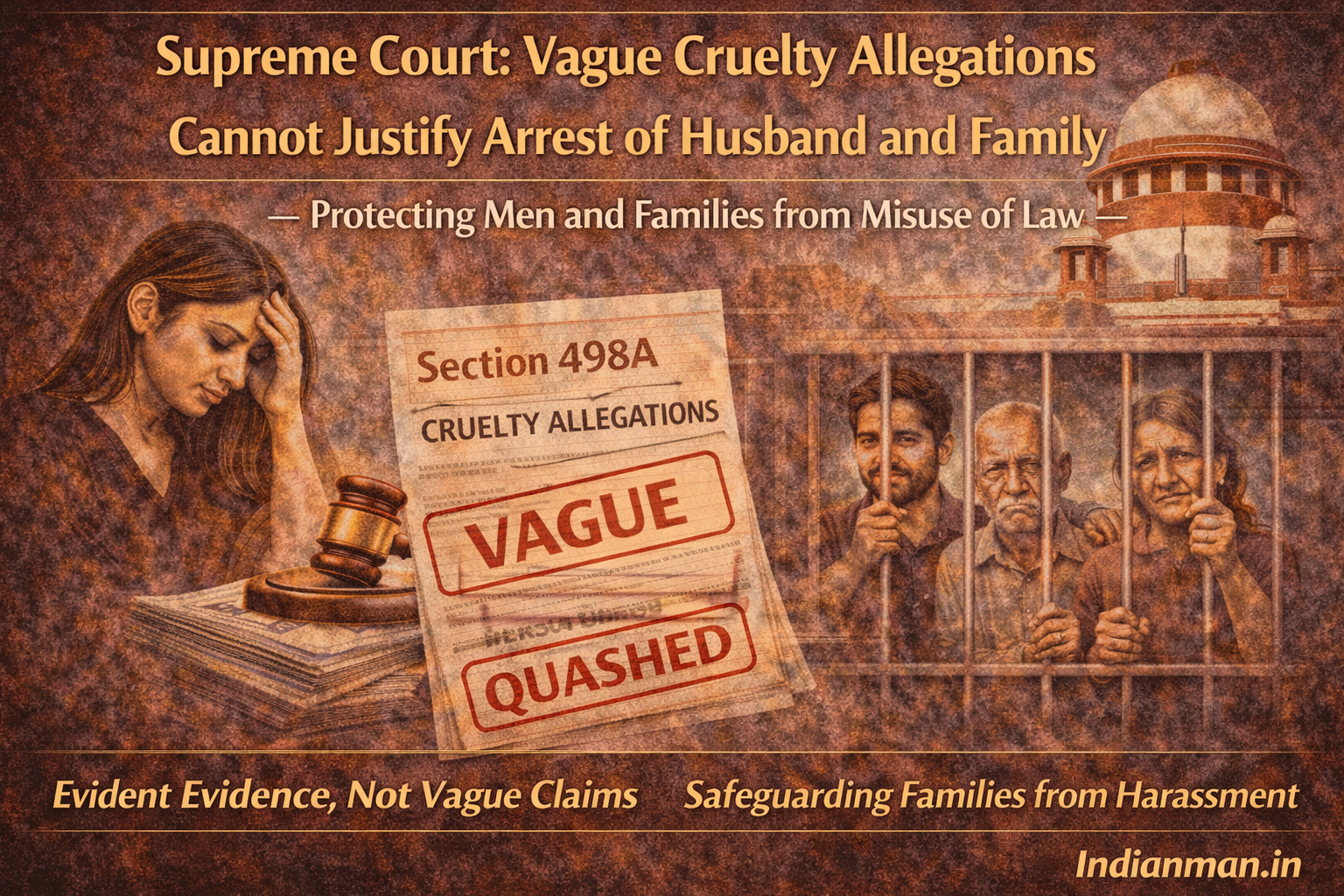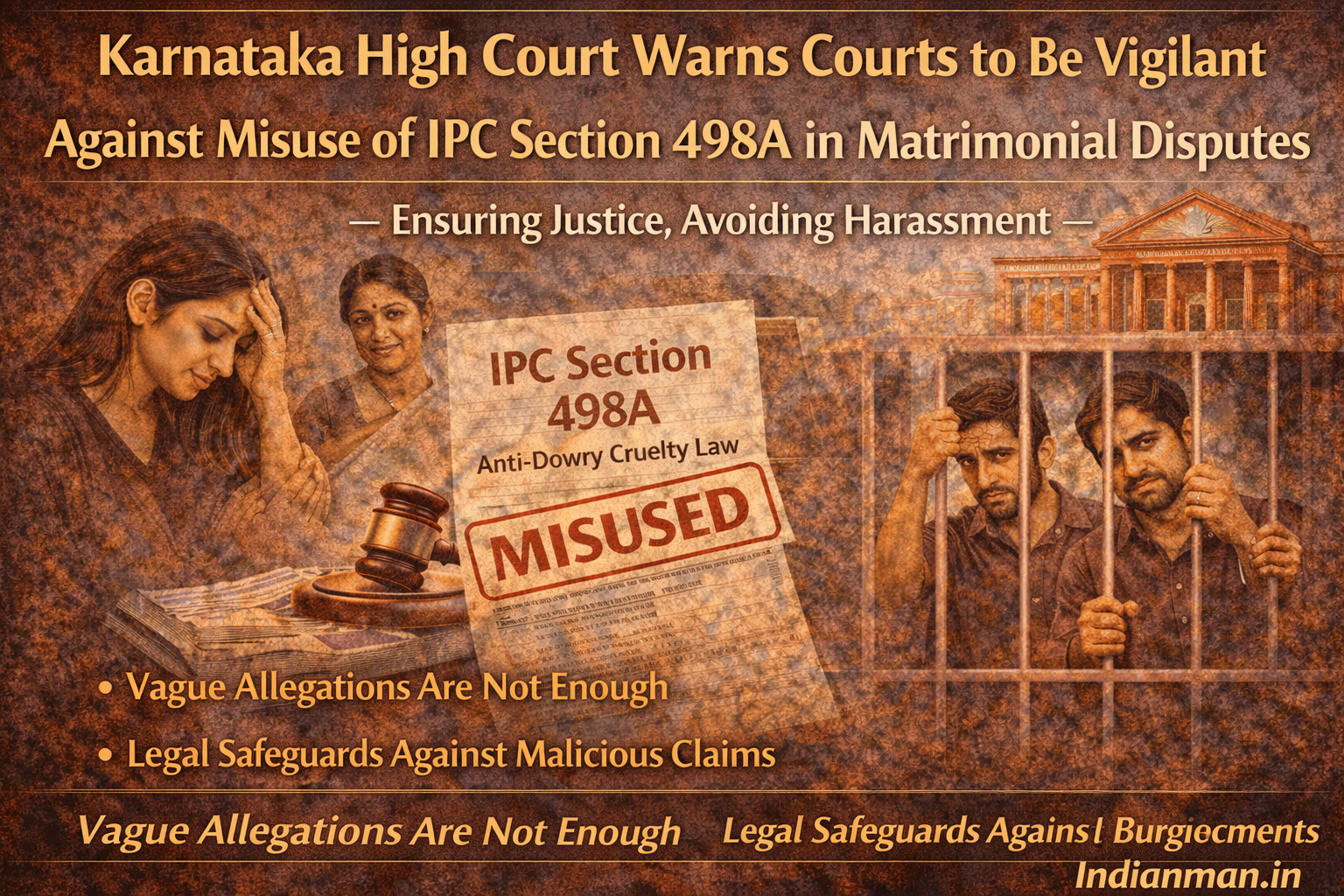Supreme Court Acquits Man Convicted of Wife’s Murder 22 Years Ago Due to Lack of Evidence
The Supreme Court has recently acquitted a man convicted of murdering his wife 22 years ago, highlighting that the conviction was based on mere suspicion rather than concrete evidence.
Background of the Case
The case involved an appeal challenging a 2004 Jharkhand High Court order that had affirmed the conviction and life sentence of the accused by the trial court. The appellant was convicted solely because he was last seen with his deceased wife.
Court’s Observations
A Division Bench comprising Justice B R Gavai and Justice Sanjay Karol noted, “The circumstances linking the appellant to the crime are not proven at all, much beyond reasonable doubt.” The Bench emphasized that suspicion, however strong, remains a doubtful element and cannot replace solid evidence required to establish guilt.
The court remarked that there was no ocular, circumstantial, or any other evidence linking the accused to the crime. The conviction was deemed to be based on incorrect and incomplete appreciation of evidence.
Details of the Incident
The incident dates back to August 1988 when the appellant’s wife was found dead in a village well. The prosecution alleged that the accused murdered his wife and dumped her body to erase evidence, further accusing him of approaching the police with a fabricated story of his wife being missing.
Witnesses and Evidence
The Supreme Court pointed out that none of the witnesses implicated the appellant, and no case of ill-treatment of the deceased by the appellant was ever registered. The prosecution’s case was found unproven as the evidence linking the accused to the crime was not established beyond reasonable doubt.
Supreme Court’s Ruling
The Supreme Court criticized the lower courts for assuming the guilt of the accused based on his last presence with the deceased and lodging a false report. The court highlighted that doubt and suspicion cannot form the basis of guilt. “The circumstances linking the accused to the crime are not proven at all, much less beyond reasonable doubt,” the Bench stated.
Acquittal and Conclusion
In light of these circumstances, the Supreme Court acquitted the man after 22 years, dismissing the case due to lack of evidence. This ruling underscores the principle that guilt must be established beyond reasonable doubt and cannot rely on suspicion alone.
Be a part our social media community:
Facebook: https://www.facebook.com/IndianMan.in?mibextid=ZbWKwL
Instagram:
https://www.instagram.com/indianman.in?igsh=MWZ2N3N0ZmpwM3l3cw==



